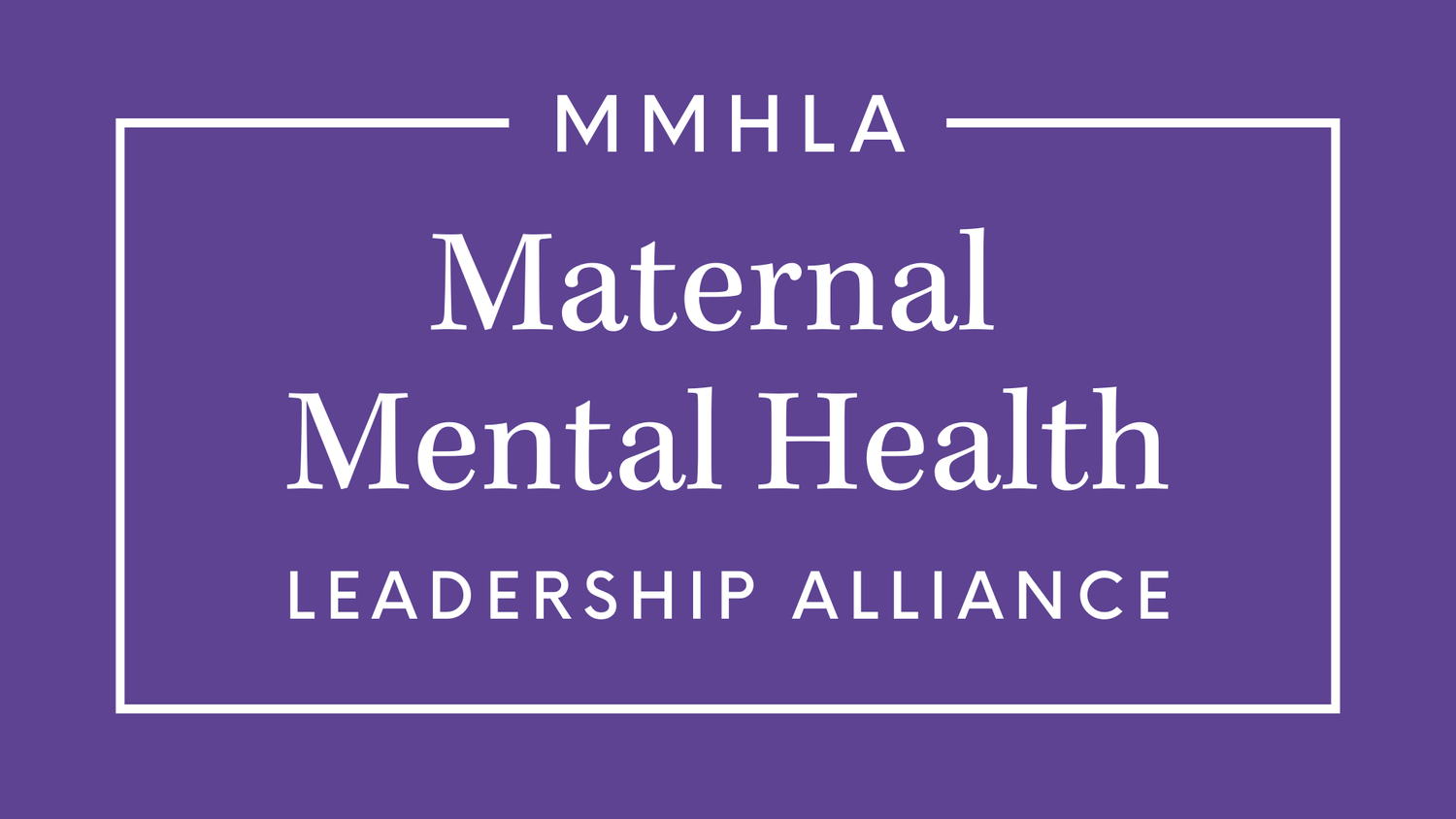Improving Maternal Mental Health in the U.S.: MMHLA’s 2025 Advocacy Agenda
Maternal Mental Health Leadership Alliance (MMHLA) is a 501(c)3 nonpartisan nonprofit organization leading national efforts to improve maternal mental health in the United States by advocating for policies, building partnerships, and curating information.
Since 2019, we have successfully secured a total of $86.5 million in federal funding for maternal mental health programs through our policy advocacy. We believe our success is due in large part to the fact that maternal mental health is a bipartisan issue. Maternal mental health conditions are a leading cause of death in the U.S., and all mothers deserve comprehensive, compassionate, and accessible maternal mental health care, support, and resources.
To fulfill our mission, we lead advocacy work that develops the national maternal mental health infrastructure in the U.S. This year, we have four advocacy goals on our 2025 Advocacy Agenda.
Advocacy Goal #1: Funding for the National Maternal Mental Health Hotline
We are advocating for $8 million in federal funding for Hotline activities.
The perinatal period, which includes pregnancy and up to one year postpartum, can be a vulnerable and challenging time. Education, support, and resources throughout the perinatal period can help facilitate a healthy perinatal experience and reduce the risk of maternal mental health conditions; however, our current health care system is not designed to provide this, since most postpartum care ends at the 6-week postpartum check-up.
The current system leaves many women to fall through the cracks. Women are at the highest risk for developing maternal mental health conditions between 3-6 months postpartum, and the peak incidence of suicide is between 6-9 months postpartum, indicating a much longer time period when women may need help.
To address these gaps, we helped establish the National Maternal Mental Health Hotline in 2022, which is a federally funded program that provides free, 24/7 voice and text resources and support from trained professionals to mothers and families. Since launching on Mother’s Day 2022, the Hotline has assisted more than 60,000 help-seekers with response times less than 30 seconds.
This year, we requested $8 million in federal funding to:
Support Hotline operations
Provide outreach to mothers in rural areas
Train Hotline counselors on best practices to support the unique needs of military servicemembers, Veterans, and their families
Continued funding will ensure transparency in the allocation of resources and efficiency in Hotline operations, while leveraging technology to enhance telehealth capabilities for those in need.
Advocacy Goal #2: Funding for the Maternal Mental Health and Substance Use Disorders Program
We are advocating for $13.5 million in federal funding for grants to states to create psychiatry access programs.
The United States has a shortage of maternal mental health providers. To help fill this gap, we successfully advocated to create the Maternal Mental Health and Substance Use Disorders Program. This program provides grants to states to create real-time mental health education, consultation, and resources to healthcare providers who support mothers in 13 states.
This year, we requested $13.5 million in federal funding to:
Support 13 existing programs (12 states and Los Angeles County)
Launch 3 additional programs
Provide coordination and technical assistance
Raise public awareness
Increase access to care, particularly in rural areas and among tribal entities
Continued funding will promote cost efficiencies, improve telehealth services, and integrate maternal and child mental health access programs, thereby streamlining support systems and reducing administrative burdens.
In our meetings with federal elected officials, we emphasize that this program is a common-sense cost savings for the federal government: each state program receives approximately $750,000 each year, which is the equivalent of less than $2.50 per birth. Compare this to the cost of untreated maternal mental health conditions, which is $32,000 per birth. By incorporating data with personal stories in our advocacy work, we demonstrate how these programs not only fill an important need but are also fiscally responsible.
Advocacy Goal #3: Supporting Military Mothers' Mental Health
We are working to ensure that maternal mental health programs are successfully implemented into the military health care system.
Military mothers suffer from maternal mental health conditions at 2-3 times the rate of their civilian counterparts, and they require specialized support due to the unique culture and lifestyle of the military.
To address this, we led advocacy efforts for a new bill, The Maintaining our Obligation to Moms who Serve Act of 2024 (also called The MOMS Act), which became law in December 2024 as part of a larger bill called the National Defense Authorization Act. The MOMS Act supports the mental health of our nation’s military mothers by requiring the implementation of maternal mental health programs into the military health care system.
This year, our advocacy work on The MOMS Act is focused on ensuring that the Department of Defense successfully implements maternal mental health programs in the military health care system.
Advocacy Goal #4: Protecting Federal Programs
We are advocating to ensure federal funding continues to support key maternal and child health programs within the Department of Health and Human Services.
On April 16, 2025, The Washington Post published an article about potential cuts to the U.S. Department of Health and Human Services, which showed that many maternal and child health programs are at risk of being eliminated.
Cutting these programs could lead to potential dire consequences for mothers, infants, children, and families, leading to long-term, multi-generational harm. Some of the programs slated for elimination include those that gather data about and seek to address the maternal mortality crisis in our country; programs that support infants and young children, such as newborn screenings and Head Start; and programs that support the mental health of infants, young children, and mothers.
To address this, we have pivoted our advocacy efforts to include national and state-based advocacy work aimed at urging federal elected officials to prevent these budget cuts.
To support our work, you can subscribe to our newsletter below and make a donation.
STAY IN TOUCH
